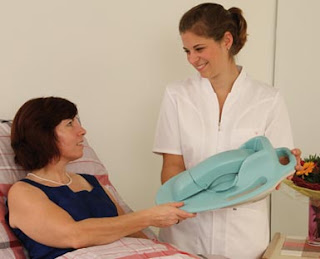 |
| Image Source: caregiverpartnership.com |
When you’ve got to go, you’ve got to go.
Sometimes, people feel the need to urinate at inopportune moments. The potty emergency is a staple of rather vulgar comedy and has been a recurring source of fun in The Sims and its successors, where players can enjoy the writhing misery of their digital people who can’t access toilets.
This is normal—assuming that you can hold it in until long enough for you to find a bathroom. However, this is even more inconvenient if you happen to have urinary incontinence. Having to control your bladder can be an embarrassing and unnerving experience, and it can make daily life extremely difficult. These unhappy little accidents may also lead to serious complications, such as skin and urinary tract infections, and drastic changes in your work and personal life.
 |
| Image Source: hkpr.on.ca |
Dealing with urinary incontinence can be a grueling task, but it is not an impossible one. While extreme cases may require medical intervention, these are rare. Doctors would typically seek out the cause of the incontinence—which could range from certain medication doses to aging, even prostate cancer in some cases. The course of treatment for incontinence would depend on its cause, but certain lifestyle adjustments can help make the situation a lot easier if the problem recurs:
- Do not overuse douches, pads, and other control devices, and don’t wash too much. Sometimes, when it happens, it’s best to let it all dry by itself.
- Have a bedpan or other urinating aid with you in certain parts of the day.
- Banish any and all potential causes of temporary incontinence or take them in moderation.
 |
| Image Source: cleanius.com |
Ask your doctor on what to do when you suspect that your medication is at fault. The Mayo Clinic discusses the issue of urinary incontinence at length. View it here.
Nephrologists, like Dr. Paul Frymoyer, are the specialists to see when you have problems with your urinary tract. Visit this blog for more articles on nephrology.